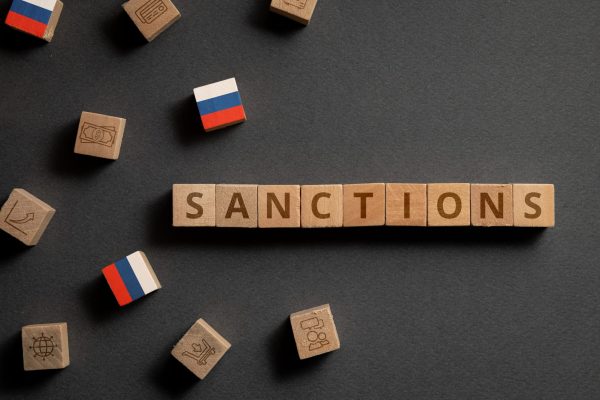EU’s 14th Sanctions Package Aims to Tighten Pressure on Russia Over Ukraine Conflict
In late June, the European Union Council announced the adoption of its 14th package of economic and individual restrictive measures against Russia. These new sanctions aim to further pressure Russia, targeting high-value sectors such as energy, finance, and trade, and making it increasingly difficult to circumvent existing EU sanctions. This move underscores the EU’s ongoing commitment to supporting Ukraine amidst Russia’s continued incursions and aggressive actions.
Expanding the Scope of Sanctions
The latest measures focus on several key areas, including energy, finance, and export controls, and target an additional 116 individuals and entities deemed responsible for undermining Ukraine’s territorial integrity, sovereignty, and independence.
Energy Sector
The EU has introduced restrictive measures to prevent Russian liquefied natural gas (LNG) from being transhipped to third countries via EU facilities. Specifically, the EU will forbid reloading services for Russian LNG intended for transshipment. This covers both ship-to-ship and ship-to-shore transfers, aiming to cut significant revenues Russia derives from LNG sales and transportation. Additionally, the EU is prohibiting new investments in and the provision of goods and services for the completion of ongoing Russian LNG projects, such as Arctic LNG 2 and Murmansk LNG.
Anti-Circumvention Measures
To combat the circumvention of sanctions, EU companies are now required to ensure that their third-country subsidiaries do not engage in activities that undermine the sanctions’ objectives. EU operators selling battlefield goods to third countries must implement due diligence mechanisms to prevent re-exportation to Russia. Furthermore, industrial know-how transferred for the production of battlefield goods must include contractual provisions to ensure that such knowledge is not used for goods destined for Russia.
Financial Measures
In finance, the EU has outlawed the use of Russia’s ‘System for Transfer of Financial Messages’ (SPFS) for EU entities operating outside Russia. Transactions involving SPFS or similar financial messaging services will be prohibited, and EU operators will be barred from engaging with listed entities using SPFS outside Russia. The EU is also introducing a ban on transactions with targeted financial institutions and crypto asset providers that facilitate Russia’s defense-industrial base.
Political and Civil Society Restrictions
The Council has also decided to restrict Russian state and proxy funding for political parties, foundations, NGOs, and media service providers within the EU as a measure to counteract Russian interference in EU democratic processes. However, these measures will not prevent media service providers and their staff from conducting other journalistic activities in the EU.
Transportation and Trade Regulations
For the first time, the EU has imposed bans on specific vessels contributing to Russia’s military efforts and activities, including those transporting stolen Ukrainian grain or supporting the Russian energy sector. A broader EU flight ban now extends to any aircraft used for non-scheduled flights involving Russian entities, and the transport of goods by road within the EU has also been further restricted.
Import-Export Controls
The sanctions add 61 new entities to the list of those supporting Russia’s military and industrial complex. These entities, some located in countries such as China, Kazakhstan, and Türkiye, will face tightened export restrictions. The list of restricted items has been expanded to include various machine tools and all-terrain vehicles, among others. Additionally, the EU introduced further restrictions on exports that enhance Russian industrial capabilities and imposed new limitations on the importation of helium from Russia.
Protection for EU Operators
The new package includes provisions for EU operators to claim compensation for damages caused by Russian companies due to sanctions implementation and expropriation. It also establishes instruments to list companies that meddle with arbitration and court competence subject to transaction bans.
Intellectual Property and Cultural Property Measures
The measures also restrict Russian nationals and companies from applying for registration of certain intellectual property rights in the EU, as a response to Russian actions depriving EU rights holders of their protection in Russia. Moreover, the sanctions forbid the trade of Ukrainian cultural property suspected to have been unlawfully removed from Ukraine.
Legal and Political Implications
Josep Borrell, High Representative for Foreign Affairs and Security Policy, emphasized that these new sanctions underscore the EU’s unity in supporting Ukraine and limiting Russia’s activities against Ukrainians. The relevant legal acts will soon be published in the Official Journal of the EU.
For further details, visit the European Union Council’s official website.
